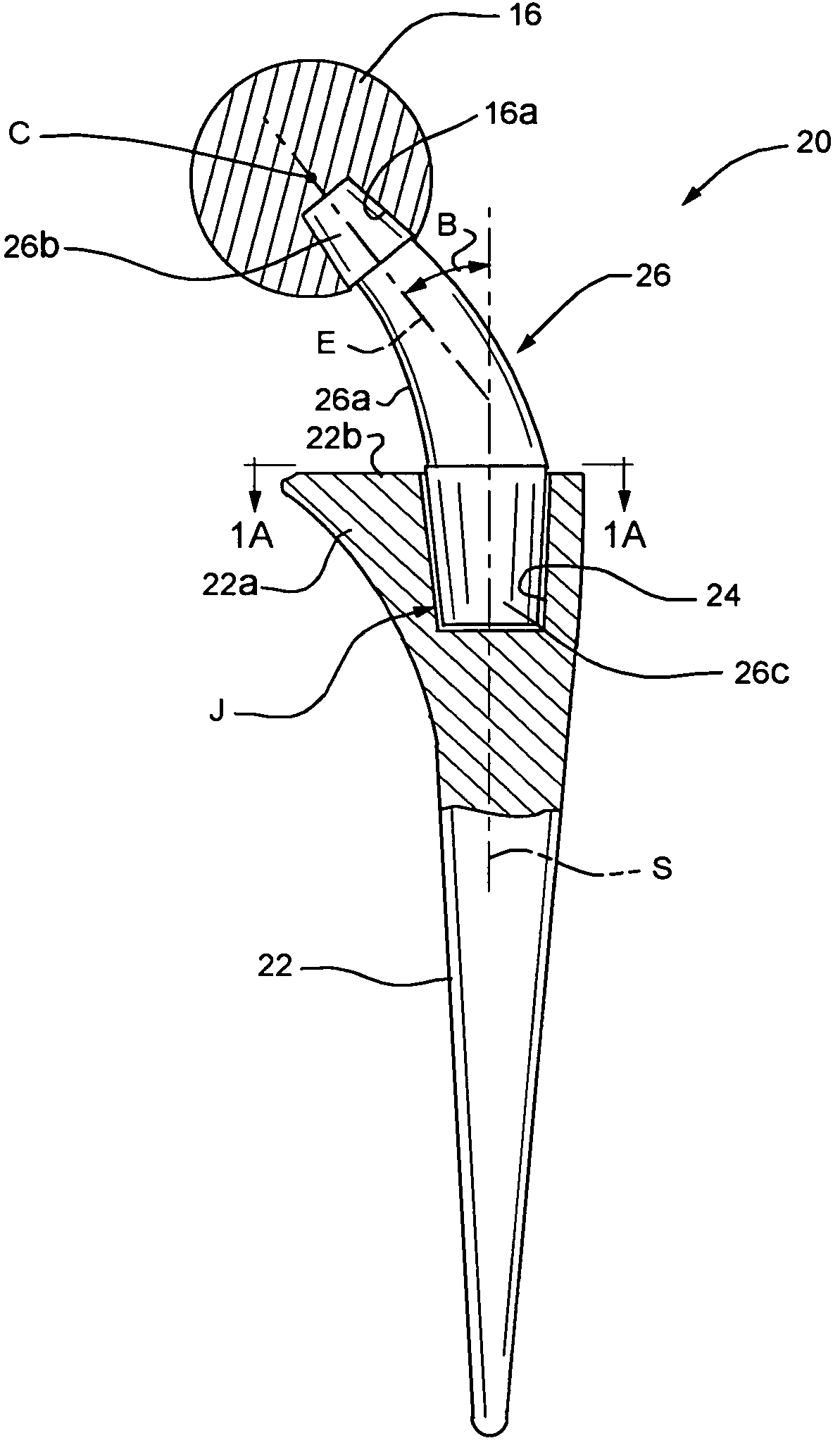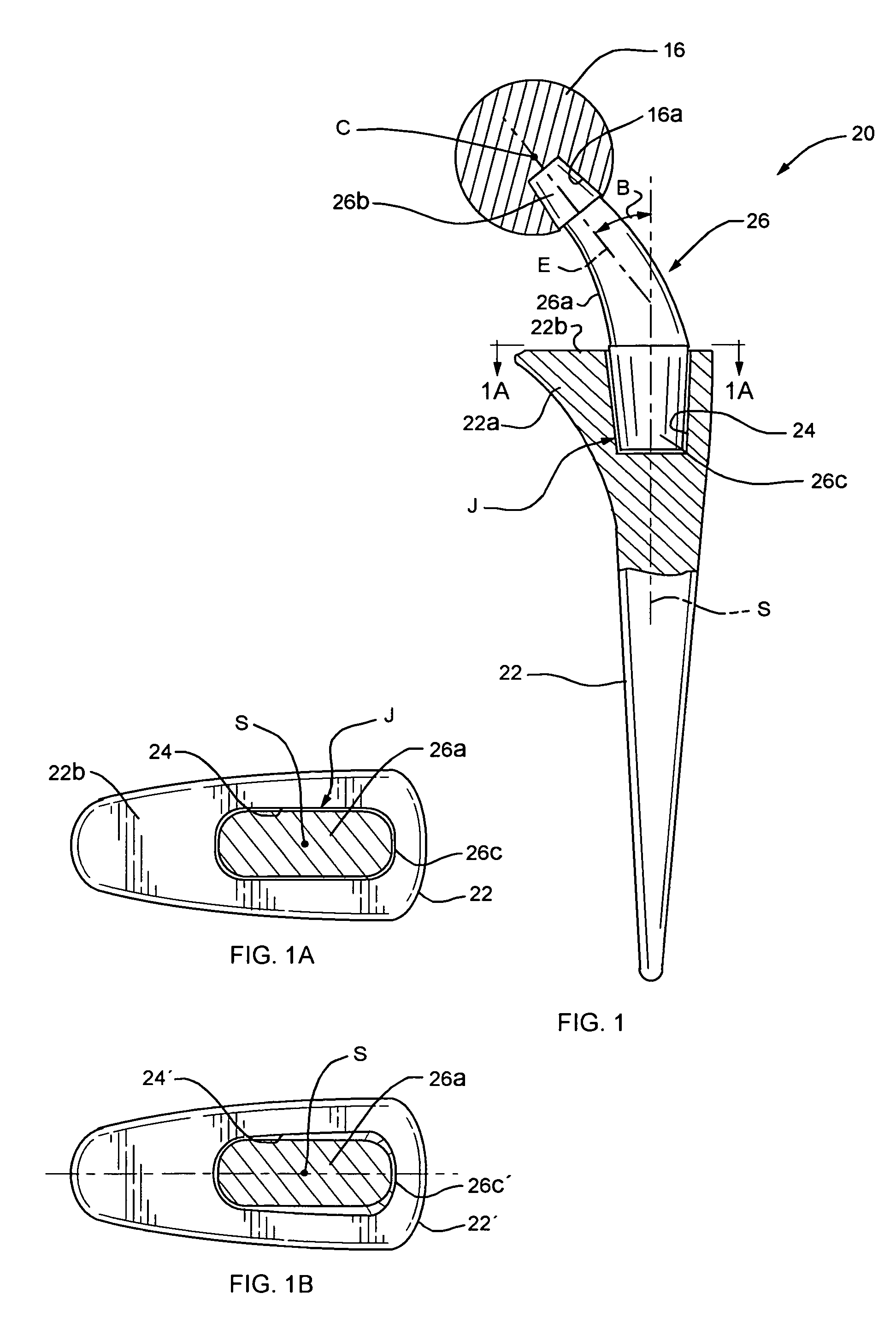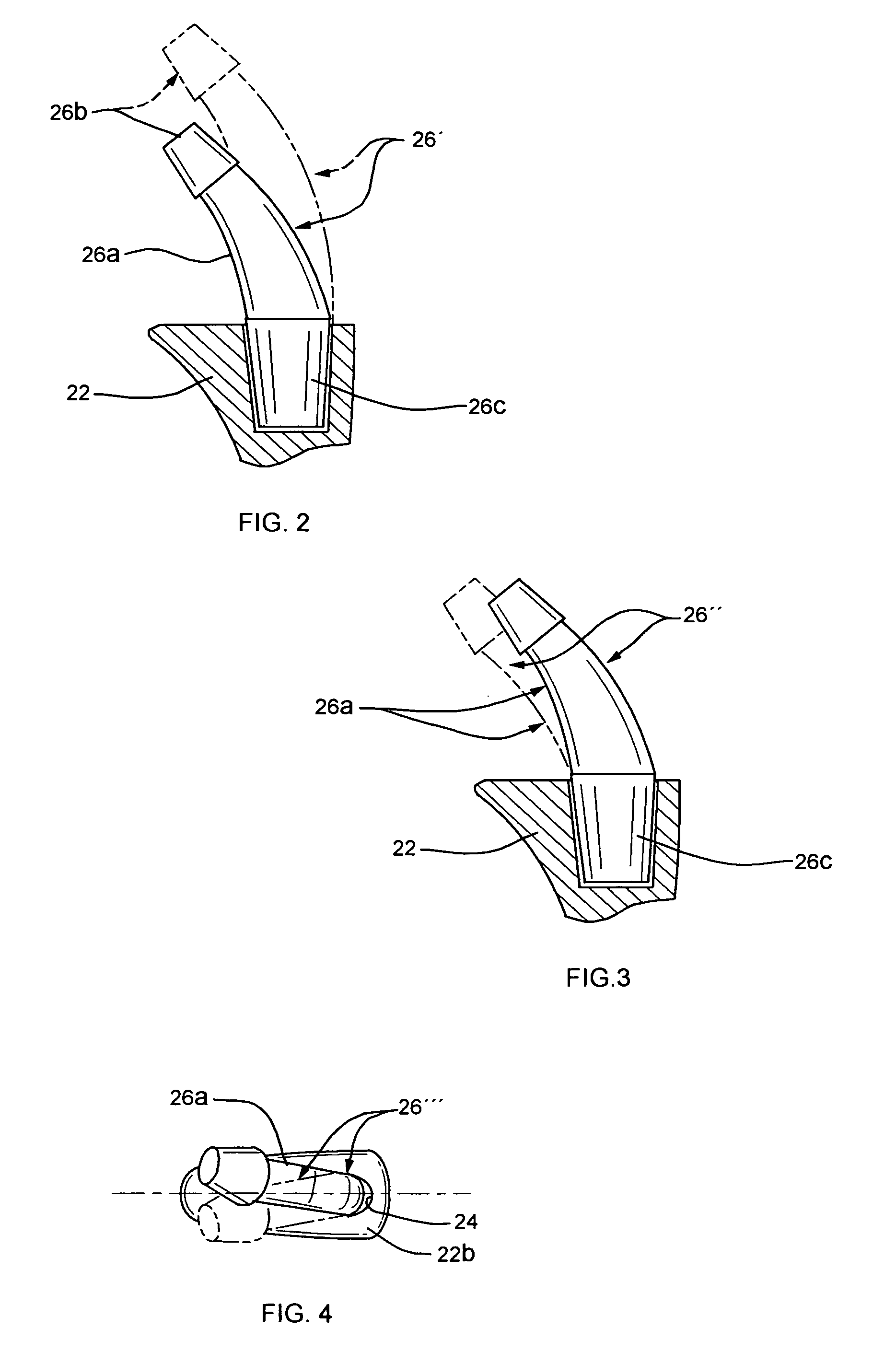Modular femoral prosthesis with on-axis junction
a femoral and module technology, applied in the field of total hip arthroplasty, can solve the problems of limiting the applicability and safety of the design for patients, affecting the quality of the difficulty of each assembly and disassembly of the trial neck and the final prosthetic neck assembly, so as to achieve a larger and stronger neck/stem junction, less variation in wall thickness, and easy and less expensive
- Summary
- Abstract
- Description
- Claims
- Application Information
AI Technical Summary
Benefits of technology
Problems solved by technology
Method used
Image
Examples
Embodiment Construction
[0032]Refer now to FIG. 1 of the drawings which shows an embodiment of my improved femoral prosthesis. It comprises a stem 22 having a metaphyseal flare 22a leading up to a flat upper surface 22b which is substantially perpendicular to the stem axis S.
[0033]As shown in FIGS. 1 and 1A, a socket 24 extends down into stem 22 from the stem upper surface 22b. Unlike the prior prosthesis depicted in FIG. 5, the socket is centered on the stem axis S and extends in the direction of that axis. Also unlike the prior implant type shown in FIG. 6, the stem socket has a cross-section which is elongated in the direction of the flare 22a. In other words, the socket has sides which extend generally parallel to the sides of stem 22. That being the case, there is more stem material available for the socket 24 in the metaphyseal area 22a of the stem, particularly in the anterior and posterior regions thereof. Accordingly, the socket can be larger and deeper than is the case with the prior prostheses. ...
PUM
 Login to View More
Login to View More Abstract
Description
Claims
Application Information
 Login to View More
Login to View More - R&D
- Intellectual Property
- Life Sciences
- Materials
- Tech Scout
- Unparalleled Data Quality
- Higher Quality Content
- 60% Fewer Hallucinations
Browse by: Latest US Patents, China's latest patents, Technical Efficacy Thesaurus, Application Domain, Technology Topic, Popular Technical Reports.
© 2025 PatSnap. All rights reserved.Legal|Privacy policy|Modern Slavery Act Transparency Statement|Sitemap|About US| Contact US: help@patsnap.com



